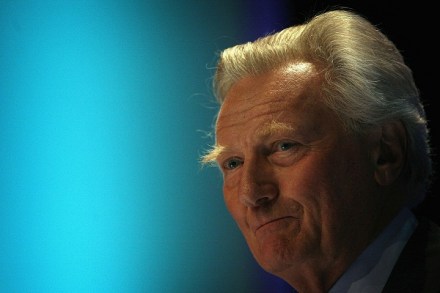Come, friendly bombs
In Competition No. 2784 you were invited to rewrite John Betjeman’s poem ‘Slough’, substituting the target of your choice. The poet Ian McMillan sprang to Slough’s defence in 2005 with ‘Slough Re-visited’, an antidote to Betjeman’s jaundiced take on the town: ‘Come friendly words and splash on Slough!/ Celebrate it, here and now/ Describe it with a gasp, a “wow!”/ Of Sweet Berkshire breath’. But according to Betjeman’s daughter, Candida Lycett-Green, her father regretted having written the 1937 poem, a fact acknowledged by Frank Osen and several others besides. Mr Osen takes £30; the rest £25. Although he lived to disavow His wish that bombs might fall on Slough, Soon




















